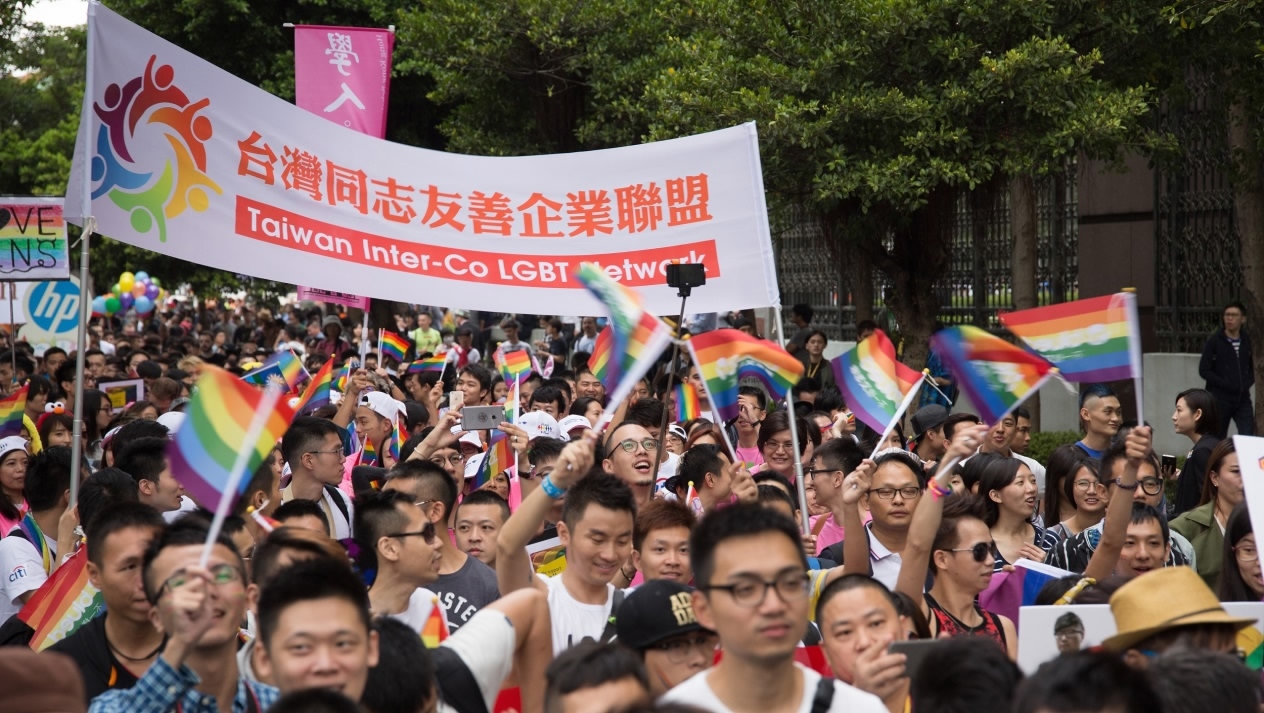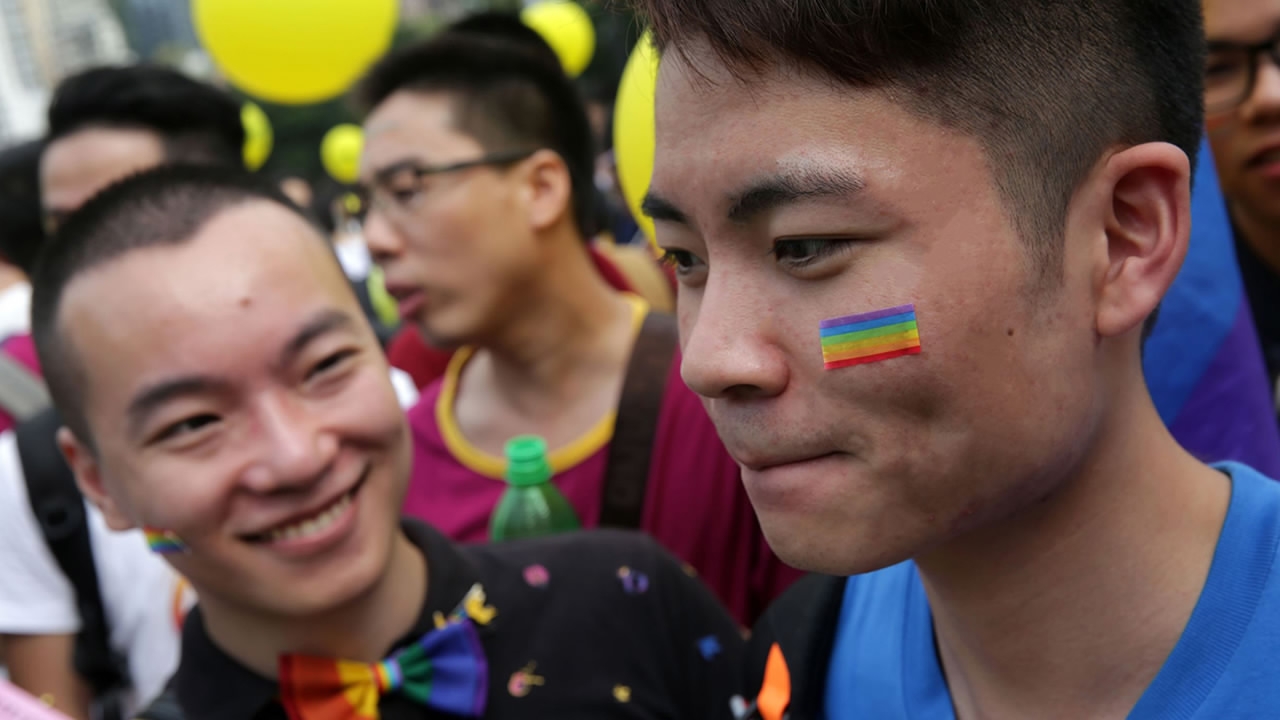
Politics
21:47, 22-Jan-2018
LGBT in China: Changes and Challenges
CGTN

The story of the LGBT community in China is one of increasing diversity, social tolerance, and personal freedoms for lifestyle choices. China has made significant progress in LGBT rights in recent years, which is widely seen as a significant progress in human rights. Yet opinions differ, understandably so, and obstacles and challenges still exist. For the LGBT community, more support is needed from government and society. Following the LGBT community in China probes social progress in China, which keeps us closer to China.
How does the public react to homosexuality in China?
Homosexuality in China has a complex history. Unlike homosexuality in the West where religious attitudes prevailed, homosexuality has long existed in Chinese history and culture and there have been art and literary works about it. Nonetheless, disdain and discrimination have often been the rule, understanding and compassion the exception.
But it is fair to say that in the last few years, there is a definite improvement and openness in China, which seems to be occurring without great public controversy.

Tens of thousands march in support of legalized same-sex marriage in Asia's biggest gay pride parade in Taiwan, China. /CGTN Photo
Tens of thousands march in support of legalized same-sex marriage in Asia's biggest gay pride parade in Taiwan, China. /CGTN Photo
But is that really the case, and what is the deeper public reaction towards homosexuality? Robert Lawrence Kuhn discussed the evolving situation with Professor Li Yinhe of the Institute of Sociology under the Chinese Academy of Social Sciences.
Li conducted research on people’s attitudes toward homosexuality in 2007. It was a telephone survey in large and mid-sized cities. The reason they didn’t include small cities is because of their restricted availability of telephones.
With strict sampling, her group found that the public was quite tolerant toward homosexuality. The rates of Chinese people’s tolerance were higher than those in other countries.
"For example, when asked whether homosexuals should have equal access to employment, 91 percent people in the Chinese mainland said yes. The figure in HK was 86 percent, and 86 percent in one of the American surveys. That is to say, the tolerance among Chinese people was higher.
However, I found that with comparison of statistics in different countries, particularly with the US, the trend of Americans’ attitudes toward homosexuality is like an hourglass, with the two extremes accounting for a high percentage, and the middle, those more uncertain, accounting for only a small share. Say, 47 percent of the interviewees are for homosexuality and 43 percent against. The middle group who don’t really have an opinion accounts for 10 percent. However in China, the case is totally different. The Chinese pattern is shaped like an oval. That is to say, those who strongly go against homosexuality are about 20 percent, and those who go all out for homosexuality are about 10 percent to 20 percent. The rest majority doesn’t really know about their attitude or don’t really care. That is an interesting contrast between China and the US,” Li said.

What is the biggest challenge for Homosexuals?
As we track the development of the LGBT community in China – lesbian, gay, bisexual and transgender, we can see that two positive changes have occurred.
First, society in general has shown an opening attitude towards homosexuals, though relatives still show great concern over the LGBT community.
Second, LGBT rights have made great progress, especially in recent years. Yet opinions differ and obstacles and challenges still exist. So what is the biggest obstacle or challenge to have the LGBT community become a normal part of society? Robert Lawrence Kuhn asked Professor Li.
“I think the biggest challenge for homosexuals is not about the ban of their activities. Governments don’t do such things any more. Their biggest problem is the deep-rooted culture of oppression in China that over-emphasizes so-called 'family values.' We refer to the phenomena as being family-oriented whereas western countries are more individual-oriented. This means in China, you should always prioritize your family value in life. When there are conflicts between family values and personal joy, personal joy should also give way. Yet in the west, family values is second to personal happiness.
Because of this culture, a great many homosexuals in China will marry a heterosexual. The percentage is said to be around 70 percent. So I think the cultural burden greatly troubles homosexuals in China. It really differs in the west. There are barely any gay men in western countries that would marry a heterosexual girl just because of the family pressure that asks him to give birth to a baby. In China, your personal joy doesn’t really matter that much in comparison with the family’s need of carrying on the family line. This is a great challenge for homosexuals in China, which gives rise to a peculiar phenomenon in China called 'marriage of convenience.'
Pressure from the family is so intense that a gay man has no other option but to marry a lesbian for 'marriage of convenience.' That is to say, formally or officially, they get married, but in reality, they each have their own sexual companion(s) without any actual bonds of marriage. They make this choice in order to deal with the pressure from their families.”

SITEMAP
Copyright © 2018 CGTN. Beijing ICP prepared NO.16065310-3
Copyright © 2018 CGTN. Beijing ICP prepared NO.16065310-3